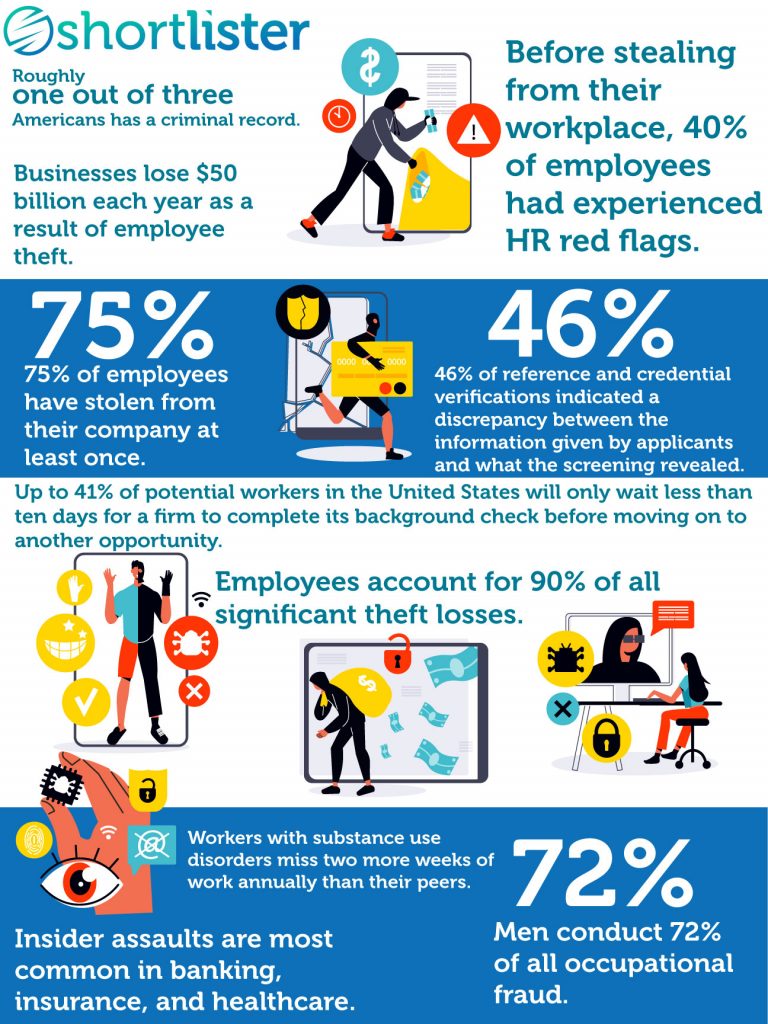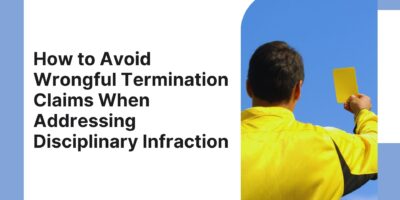
What is Gross Misconduct?
Gross misconduct is one of the reasons why companies must have employee handbooks that clearly distinguish between appropriate and inappropriate behavior and outline the repercussions in the event of misconduct.

Employers are no strangers to job prospects altering their resumes.
To clear out fraudulent candidates, a quick reference check can help recruiters and companies better represent the applicant’s educational background and work experience.
However, there are more pressing matters than fabricated or enhanced credentials—for example, possible red flags like criminal convictions or other violations.
A survey by NAPBS revealed that up to 95% of employers conduct employment background screenings.
By looking into the applicant’s past work history and education and their potential criminal activity, organizations can select the best fit for the job and the team. In fact, this helps them avoid harm or legal liability like workplace violence, theft, negligence, etc.
For some employers, reference checks are an outdated method that fails to accurately depict the applicant’s personality, qualities, and potential.
However, past performance can be a strong indicator of a person’s ability, motivation, and expertise, especially at later stages of career development. It’s also a practical way to sort out and discard candidates that can pose a potential risk for the company and its employees.
Recent background check statistics show that hiring the wrong person has costly repercussions for businesses, so businesses frequently request background checks on job prospects for employment screening.
To safeguard the organization and its workers, employers should make background checks a common practice, especially for roles requiring high security or trust.
Here are some background check statistics that show the trends in this field:

On paper, many job seekers might seem like the perfect candidate.
But in reality, this could be very different. A misjudgment of a job prospect in the recruitment or onboarding process can seriously affect companies and their current employees.
So, as the first line of defense against a bad hire, background checks can verify the reliability of an applicant.
Depending on the complexity and seriousness of the role, companies can decide the scope of the employee screening processes. It can be anything from simple reference check-ups to inspecting credit scores, criminal records, sex offender registries, motor vehicle reports, and conducting obligatory drug testing.
Overall, background check statistics are showing a rising trend; because remote work is now more attainable than ever, some employers and recruiters are placing even greater emphasis on completing background checks and following up with employees’ references. And by doing so, they are ensuring they can stay on top of the company’s safety.
Browse our curated list of vendors to find the best solution for your needs.
Subscribe to our newsletter for the latest trends, expert tips, and workplace insights!

Gross misconduct is one of the reasons why companies must have employee handbooks that clearly distinguish between appropriate and inappropriate behavior and outline the repercussions in the event of misconduct.

As the employee benefits landscape continues to increase in complexity and employees expect consumer-level technologies in the workplace, the right Ben Admin software is critical to effectively administering employee benefits programs.

A “small” disciplinary infraction can quickly snowball into a wrongful-termination claim. Do your policies, documentation, and managers hold up?

As employee priorities and needs shift, the importance of voluntary benefits in the workplace is increasing.
Used by most of the top employee benefits consultants in the US, Shortlister is where you can find, research and select HR and benefits vendors for your clients.
Shortlister helps you reach your ideal prospects. Claim your free account to control your message and receive employer, consultant and health plan leads.